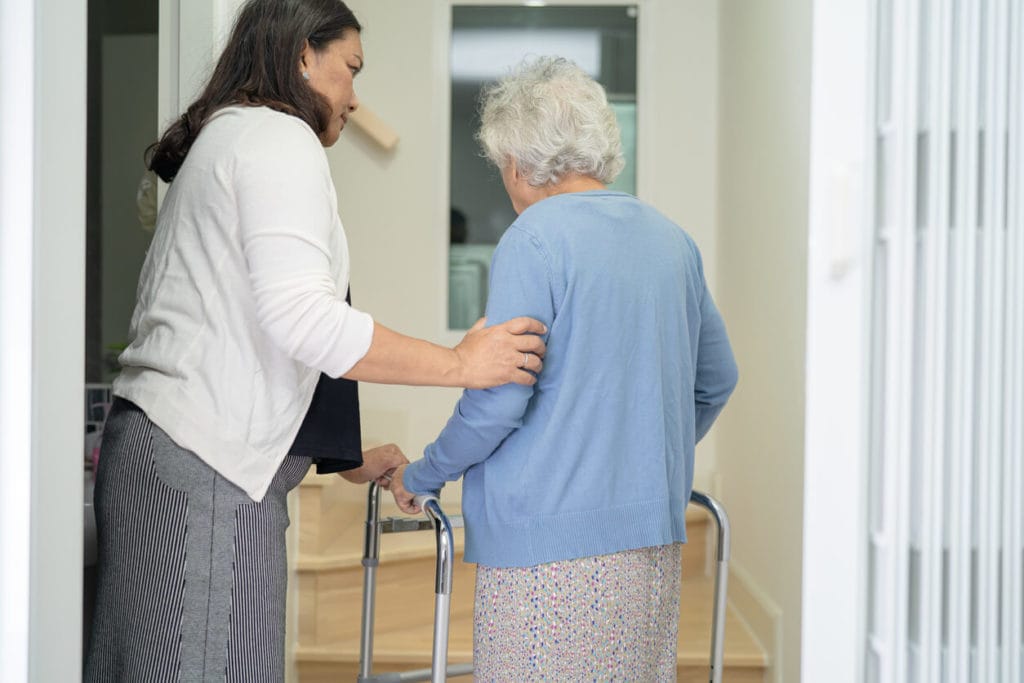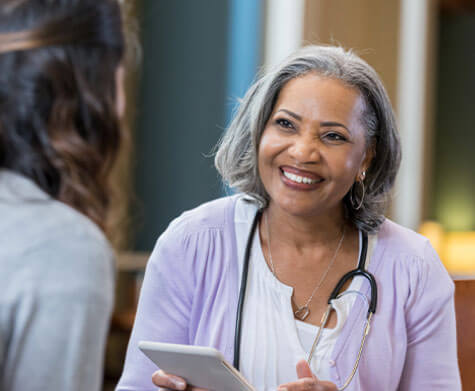
Imagine a world where every step you take is a potential risk. For many seniors, this is a daily reality. Falls are not just about slipping or tripping; they are a significant health concern that can dramatically impact a senior’s life. This article aims to shed light on the importance of fall prevention for our senior community, offering insights and strategies to safeguard their well-being.
By understanding the risks and taking proactive measures, we can help ensure that our seniors live with dignity, safety, and independence.
Why It’s Important for Seniors to Avoid Falling
Falls can have devastating consequences for seniors, affecting their health, independence, and quality of life. Here’s why avoiding fall prevention for seniors is critical:
Injuries and Complications
Falls can lead to severe injuries like fractures, especially hip fractures, which are particularly debilitating for seniors. These injuries can lead to:
- Long hospital stays
- Surgeries
- Complications like infections
Loss of Independence
A serious fall often results in the need for assisted living or long-term care. This loss of independence can be emotionally distressing for seniors who value their autonomy.
Fear of Falling Again
Experiencing a fall can instill a fear of falling again, leading seniors to limit their activities and social interactions. This self-imposed restriction can result in physical decline, depression, and social isolation.
Financial Burden
The healthcare costs associated with falls are significant, including emergency care, rehabilitation, and potential long-term care needs.
Overall Health Decline
Prolonged inactivity following a fall can lead to a decline in overall health, exacerbating existing chronic conditions and increasing the risk of future falls.
The Common Causes of Falls
Some of the most common hazards that lead to falling include:
- Environmental Factors: Poor lighting, slippery or uneven floors, clutter, and improperly placed furniture are common hazards in the home.
- Health Conditions: Conditions like arthritis, diabetes, heart disease, and neurological issues can affect balance and mobility.
- Medications: Some medications or combinations of drugs can cause dizziness, dehydration, or confusion, increasing the risk of falls.
- Vision Impairment: Age-related vision problems can make it difficult to see obstacles and judge distances correctly.
- Improper Footwear: Shoes that are ill-fitting, have high heels, or lack non-slip soles can make seniors more prone to slipping.
Comprehensive Approaches to Reducing Fall Risks
Here are some strategies for fall prevention for seniors:
1. Home Safety Modifications
The home environment plays a crucial role in fall prevention. Simple adjustments, like the ones listed below, can make a significant difference:
- Installing grab bars in bathrooms
- Using non-slip mats
- Ensuring proper lighting, especially in stairways
- Removing tripping hazards such as loose carpets and clutter
It’s also important to arrange furniture to create clear walking paths and ensure that essential items are within easy reach to reduce the need for stretching or bending.
2. Regular Health Check-ups
Regular visits to healthcare providers are vital for monitoring overall health and managing any conditions that might increase the risk of falls.
This includes a thorough review of all medications, as some can affect balance and coordination.
Regular hearing and vision checks are also important, as impairments in these senses can significantly increase the risk of falling.
3. Physical Activity and Balance Training
Engaging in physical activities that strengthen the legs and improve balance is essential. Exercises like Tai Chi, gentle yoga, and even walking can be beneficial.
Seniors may also benefit from physical therapy, which can provide a tailored exercise program.
Participating in community-based programs that focus on senior fitness and balance can offer both physical and social benefits.
4. Proper Nutrition and Hydration
A balanced diet rich in calcium and vitamin D is important for maintaining bone health. Staying well-hydrated is equally important to avoid dizziness or confusion that can lead to falls.
This means drinking enough water and other fluids throughout the day and being mindful of signs of dehydration.
5. Educational Programs and Awareness
Attending workshops or seminars on the topic can provide valuable information on how to reduce fall risks. Learning about the proper use of assistive devices is also important, as improper use can lead to falls.
6. Use of Assistive Devices
For those who need them, properly fitted and used assistive devices like canes or walkers can greatly reduce the risk of falls.
These devices should be the correct height and type for the individual, and seniors should be trained in their proper use. Wearing shoes with non-slip soles both indoors and outdoors can also provide additional stability.
7. Community Support and Resources
Engaging with community resources can provide additional support in fall prevention. This includes:
- Participating in programs at local senior centers that focus on well-being and fall prevention
- Tapping into local health resources for education and support
The Best Primary Care Medical Center in Florida & Texas
Fall prevention for seniors is not just about avoiding accidents; it’s about creating a supportive environment where they can thrive without fear. By understanding the risks, addressing common causes, and implementing effective prevention strategies, we empower our seniors to lead more confident and independent lives. Let’s all play our part in this crucial mission – whether as family members, caregivers, or healthcare professionals.
Are you looking for the best primary care medical center for seniors in Florida and Texas? If so, you can rely on Palm Medical Centers, bringing genuine kindness to senior primary care for 10 years. You may call our compassionate staff today at (833) 500-PALM (7256) to book a visit with doctors who listen to you. For your convenience, we have multiple locations, 34 clinics spread in Texas and Florida. Receive a $15 gift card at your first new patient appointment!
We look forward to serving you!

 4.8 Google Rating out of 7K Reviews
4.8 Google Rating out of 7K Reviews






